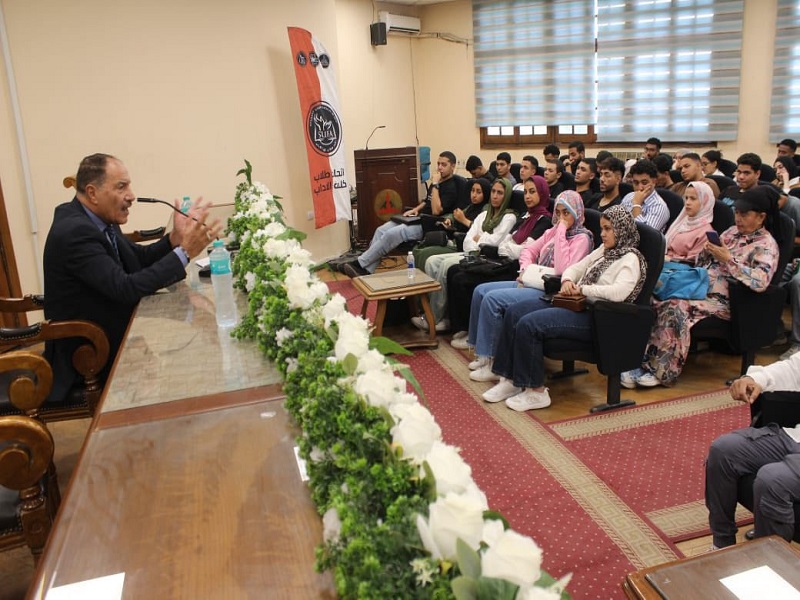A Seminar on the Dangers of Synthetic Drugs at the Faculty of Arts
As part of Ain Shams University’s Faculty of Arts’ commitment to raising awareness of issues that impact the present and future of youth, and under the patronage of Prof. Dr. Mohamed Diaa Zain El Abedeen, University President, Prof. Hanan Kamel, Dean of the Faculty, and supervision of Prof. Mohamed Ibrahim Hassan, Vice Dean for Education and Student Affairs, the faculty organized an awareness seminar entitled:
“Raising Awareness of the Dangers of Synthetic Drugs and the Role of Youth in Confronting Them.”
Prof. Fathy El Sharkawy, Professor and Head of the Psychology Department, and former Vice President of the University, delivered a comprehensive scientific lecture addressing the serious dangers of synthetic drugs. He discussed the various dimensions of addiction from psychological, behavioral, academic, and physical perspectives.
Prof. Mohamed Ibrahim Hassan opened his speech with special thanks to Dr. El Sharkawy, emphasizing the faculty’s pride in his continuous involvement in its activities and events, highlighting his esteemed academic and scientific value.
In his lecture, Prof. El Sharkawy detailed the different symptoms of addiction, noting that addicts often exhibit sudden behavioral changes such as unexplained laughter or crying, alongside a dull personality and consistently weak physical condition. He expressed regret over the role some families play in facilitating drug use among their children, citing a common scene of a mother providing drugs to her child out of compassion.
He explained that the causes of addiction are diverse, including familial, personal, and economic factors, stressing the urgent need to address this phenomenon institutionally. He called upon the Ministry of Higher Education and the government to establish clear policies for addiction prevention, promoting cooperation among the Ministries of Health, Youth, Culture, and Education. He urged the launch of awareness campaigns targeted at new students, allocation of budgets to support research centers, continuous monitoring and supervision of student housing, and encouraging student engagement in scientific research and academic activities as protective shields against behavioral deviation.


.svg)

